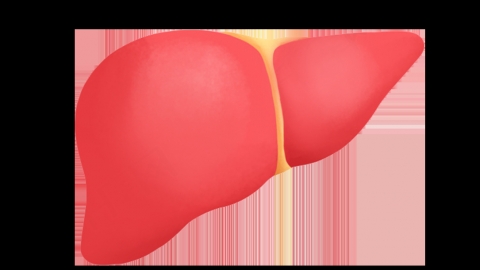What medications can quickly lower elevated transaminase levels?
Generally speaking, there is no specific medication that can rapidly lower transaminase levels without the presence of elevated transaminase. Elevated transaminase levels may be related to factors such as strenuous exercise, excessive fatigue, fatty liver disease, alcoholic liver disease, viral hepatitis, and others. It is recommended to seek timely medical consultation and follow the guidance of a physician for general treatment or medication treatment as needed. A detailed explanation is as follows:

1. Strenuous Exercise
After intense physical activity, metabolic activity in muscle cells increases, and some muscle cells may be damaged, leading to the release of transaminases into the bloodstream, thereby elevating transaminase levels. It is recommended to warm up properly before engaging in strenuous exercise and to avoid excessive fatigue.
2. Excessive Fatigue
Long-term overexertion can lead to a decline in bodily functions and increased burden on the liver, thereby affecting normal liver metabolism and causing elevated transaminase levels. It is recommended to maintain a reasonable work-rest balance and avoid staying up late or working for prolonged periods without rest.
3. Fatty Liver Disease
Fatty liver disease is often caused by long-term alcohol consumption, obesity, and other factors. Excessive fat accumulation within liver cells leads to liver cell damage and the release of transaminases into the bloodstream. This condition is usually accompanied by symptoms such as fatigue in the liver area, abnormal blood lipids, and sleep disturbances. Treatment typically involves medications such as simvastatin tablets, atorvastatin calcium tablets, and polyene phosphatidylcholine capsules, as directed by a physician.
4. Alcoholic Liver Disease
Alcoholic liver disease is typically caused by long-term excessive alcohol consumption. Acetaldehyde, a byproduct of alcohol metabolism, has a direct toxic effect on liver cells, causing liver cell damage and elevated transaminase levels. Symptoms may generally include jaundice, ascites, and malnutrition. Treatment may involve medications such as reduced glutathione for injection, compound glycyrrhizin injection, and potassium chloride injection, as directed by a physician.
5. Viral Hepatitis
Viral hepatitis is usually caused by viral infection. The virus invades liver cells, causing an inflammatory response in the liver, leading to liver cell damage and the release of transaminases into the bloodstream. Symptoms may also include liver area pain, jaundice, and spider angiomas. Treatment may involve medications such as entecavir dispersible tablets, tenofovir disoproxil fumarate tablets, and diammonium glycyrrhizinate injection, as recommended by a physician.
It is recommended to maintain healthy lifestyle habits, quit smoking and drinking promptly, consume light and nutritious foods, and reduce the intake of irritating foods to aid in the body's recovery.







